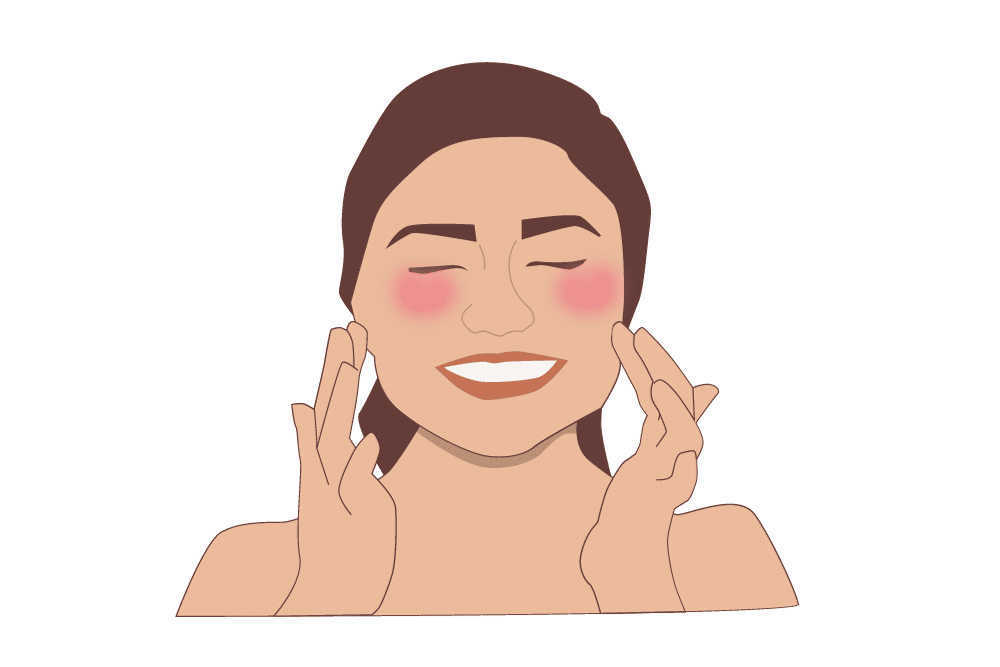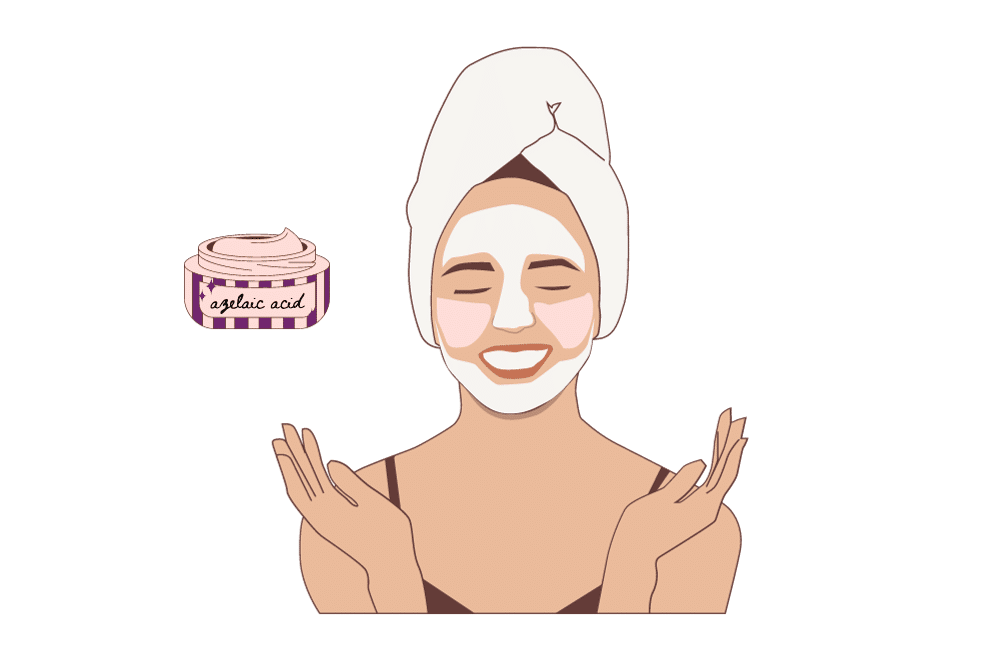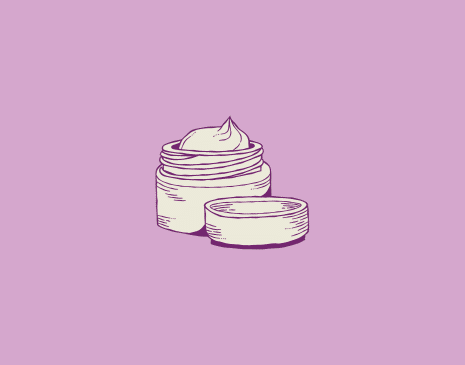Living with rosacea sometimes means dealing with the constant battle against redness, inflammation, and discomfort. Over-the-counter skin care products can help to some extent, but they might not provide the potent and targeted treatment that prescription creams can offer. If you’re seeking the best prescription cream to treat symptoms of rosacea and achieve a clearer, healthier complexion, you’re in the right place.
Join us as we take a closer look at rosacea, understand the role of prescription creams in its treatment, and explore some available options. By the end, you’ll better grasp how to choose the right prescription cream to treat rosacea (with the advice of your healthcare provider) and enjoy a more confident, radiant you.
What is Rosacea?
Rosacea is a common facial skin condition characterised by various types:
- Erythematotelangiectatic rosacea: This type involves visibly broken blood vessels on the nose, cheeks, or chin.
- Papulopustular rosacea: It manifests as bumps, papules, and pustules on the facial skin.
- Swollen rosacea: This type can cause the skin on the nose, cheeks, forehead, and chin to resemble ‘orange peel’.
- Ocular rosacea: It affects the eyes along with the facial skin.
Typically affecting the cheeks, chin, and nose, rosacea is more common among women aged 30 to 50 years.¹ It is not contagious but may have a genetic component. While there is no known cure, various treatments are available to manage its symptoms. Unlike acne, rosacea can cause embarrassment, especially if left untreated.
Common Symptoms and Triggers
Wondering if you might have rosacea? Here are some signs to look out for:
- Frequent blushing or flushing on your cheeks, nose, chin, or forehead.
- Persistent redness that looks like a sunburn but doesn’t fade away.
- Small blood vessels that are visible on your face.
- Bumps or pimples on your face that can sting or burn, often found on your cheeks, chin, and nose.
As rosacea progresses, you might notice your skin getting thicker, especially around your nose, which may also swell. Your eyelids could also show signs like becoming red, sore, or feeling gritty.¹

The Impact of Rosacea on Quality of Life
Rosacea isn’t just a cosmetic concern; it can significantly affect quality of life. Living with a condition that causes persistent facial redness and discomfort can lead to emotional and psychological challenges. Some of the ways rosacea can impact someone’s life include:
- Self-Esteem and Confidence: People with rosacea may feel self-conscious about their appearance, leading to reduced self-esteem and confidence.
- Social and Emotional Well-Being: Rosacea can affect social interactions, as people may withdraw from social activities due to embarrassment or discomfort.
- Work and Relationships: It can also impact professional and personal relationships, as the visible symptoms of rosacea may lead to misunderstandings or judgements.
- Physical Discomfort: The burning, stinging, and itching sensations associated with rosacea can be physically uncomfortable and distressing.
Understanding the nature of rosacea, its symptoms, and its impact on daily life is essential for anyone with this condition. With the right knowledge and management strategies, you can take steps to treat rosacea, minimise its effects and regain your confidence and well-being.
The Role of Prescription Creams
At Youly, we understand the importance of effective skincare solutions, especially when managing challenging conditions like rosacea. Our commitment to helping you achieve healthier, radiant skin extends to our prescription skincare creams.
Why Prescription Creams Are Effective?
Prescription treatments for rosacea are formulated with carefully selected active ingredients that aim to target the root causes of rosacea. Prescription creams may offer several benefits:
- Potency: Prescription creams typically contain higher concentrations of active ingredients, such as azelaic acid, ensuring more effective results in managing rosacea symptoms.
- Customised Formulas: Youly’s medical team work closely with you to customise topical creams that meet your unique needs, taking into account your skin type and the severity of your rosacea.

Tips for Using Prescription Creams
Using prescription creams to manage rosacea requires a strategic approach to ensure you achieve the best results while minimising potential side effects. Here are some essential tips to help you make the most of your prescription cream treatment:
- Follow Your Treatment Plan: Always adhere to your clinician’s treatment plan and instructions. They will recommend the specific prescription cream, its application frequency, and any other skincare products you should or shouldn’t use alongside it.
- Start Slowly: When you begin using a prescription cream, especially if it’s a new treatment, start slowly to allow your skin to acclimate. Begin with less frequent applications and gradually increase as your skin tolerates it.
- Use a Pea-Sized Amount: A little goes a long way with prescription creams. Typically, a pea-sized amount is sufficient to cover your entire face. Applying too much can lead to excess irritation.
- Apply to Clean, Dry Skin: Cleanse your face gently with a mild, fragrance-free cleanser before applying the prescription cream. Ensure your skin is completely dry before applying the cream to maximise its effectiveness.
- Avoid Sensitive Areas: Be cautious when applying the cream near sensitive areas, such as the eyes, mouth, and nostrils. It’s usually best to avoid these areas unless your dermatologist specifically instructs otherwise.
- Sun Protection is Essential: Prescription creams can make your skin more sensitive to the sun. Always apply a broad-spectrum sunscreen with SPF 30 or higher during the day, even if you don’t plan to be in direct sunlight.
- Be Patient: Results may not be immediate. It can take several weeks to notice significant improvements in your rosacea symptoms. Continue using the cream as directed, even if you don’t see immediate changes.
- Avoid Harsh Products: Avoid using harsh or abrasive skincare products, such as exfoliants or products with strong fragrances, while using prescription creams. These can exacerbate irritation.
- Moisturise Regularly: Rosacea can cause dryness and sensitivity. A gentle, hydrating moisturiser can help maintain skin barrier health and reduce irritation.
- Communicate with Your Clinician: If you experience any unusual side effects or worsening of symptoms, contact your clinician immediately. They can guide you on adjusting your treatment or addressing any concerns.
- Be Consistent: Consistency is key to successfully managing rosacea. Stick to your prescribed skincare routine diligently to maintain the progress you’ve achieved.
- Consider Lifestyle Changes: Besides prescription creams, consider making lifestyle changes that can help manage rosacea, such as avoiding trigger foods, managing stress, and using gentle skincare products.
By following these tips and maintaining open communication with your clinician, you can optimise the benefits of your prescription cream and take significant strides toward clearer, healthier skin.
Source
- Rosacea [Internet]. Healthdirect.gov.au. Healthdirect Australia; 2019. Available from: https://www.healthdirect.gov.au/rosacea







